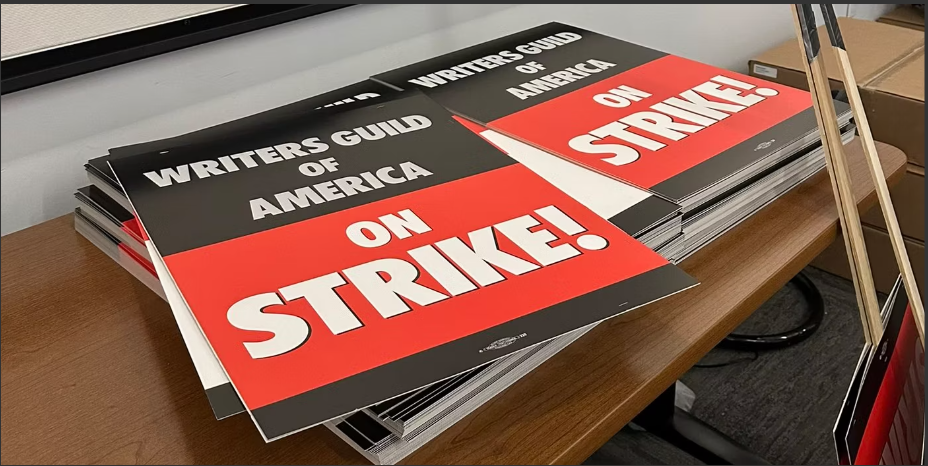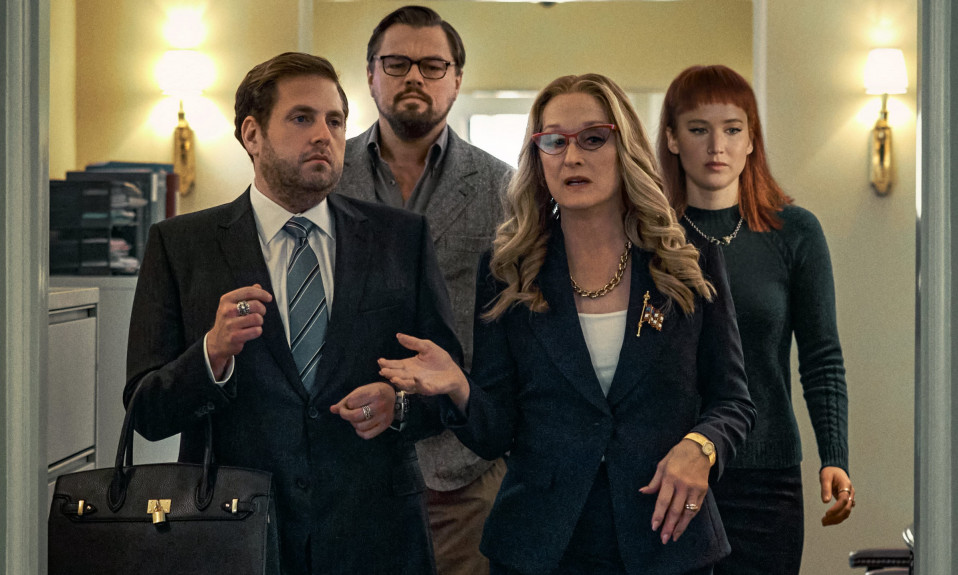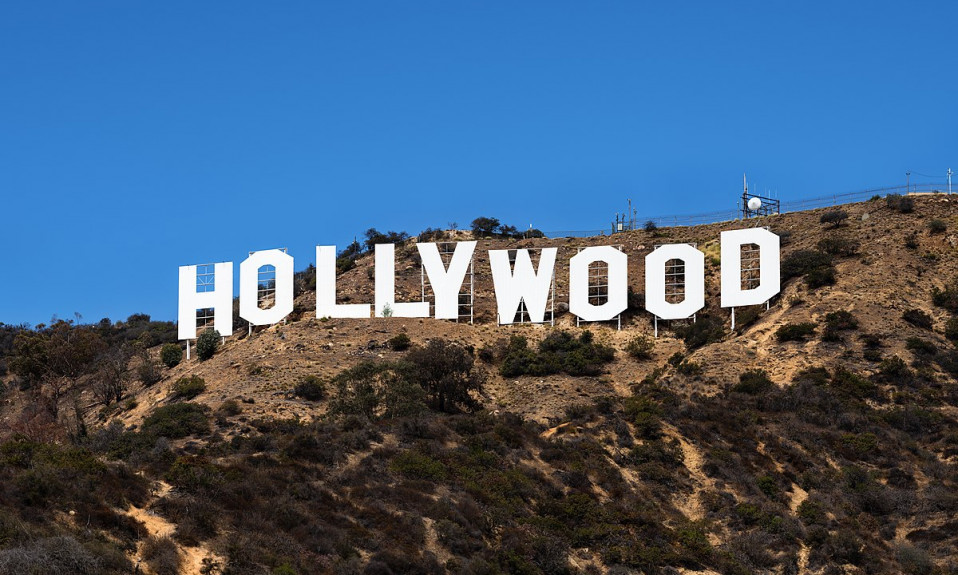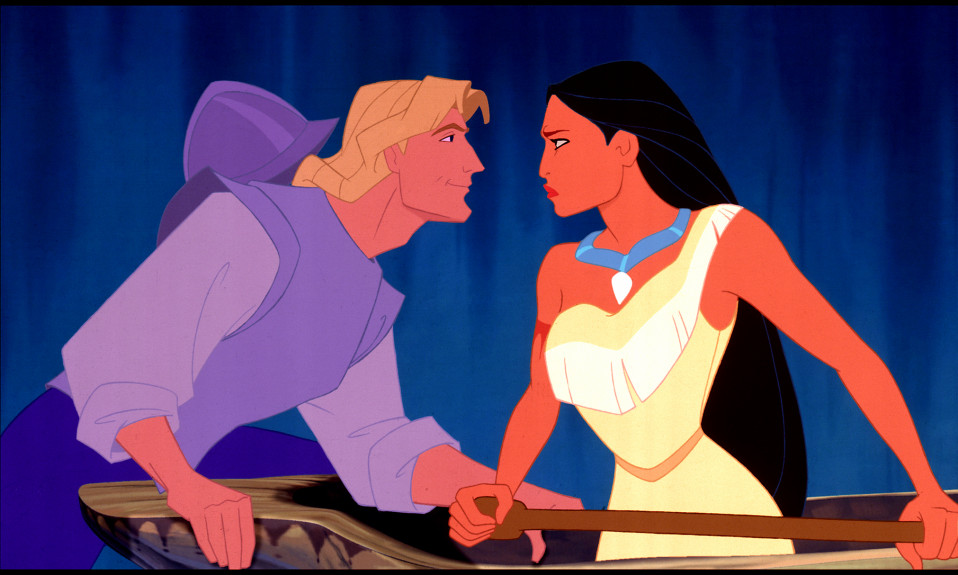The Writers Guild of America has been on strike for a few weeks now. You may have seen pictures all over social media of screenwriters out with meme-worthy signs at picket lines. For those outside the industry, there is some confusion as to why this strike is happening and what it’s trying to achieve. Join us as we take a look at the ongoing strike and what it could mean for the future of television.
Wait, What’s the WGA?
The Writer’s Guild of America (WGA) is used to refer to the joint operations of two affiliated labour unions founded in 1954; Writer’s Guild of America, East (WGAE) and Writer’s Guild of America West (WGAW). These two labour unions represent writers in television, film, radio and online media in America. They have headquarters in New York City and Los Angeles respectively, each administering its respective side of the United States. Although they are separate entities, they share certain functions like hosting The Writers Guild of America Awards, negotiating contracts and launching strikes.
So Why Are They Striking?
There is a common misconception that everyone in the film industry is rolling in money. It’s understandable, considering that Hollywood is often depicted as the land of glitz and glamour with films and TV shows raking in billions.
The thing is, not much of that actually goes to writers.
Of course, there are a select few screenwriters out there making big bucks but many of the brains behind your favourite shows are living paycheque to paycheque. This hasn’t always been the case, though. Writers simply aren’t being paid as much as they are used to.
One of the main reasons is the disappearance of residuals in the era of streaming. Residuals are a percentage of the profit received when media a person works on is syndicated, re-run or re-released. For decades, residuals have been an important part of a writer’s long-term income. However, the laws that governed residuals applied to traditional TV, not streaming. With most TV shows moving to streaming and studios grinding the minimum payments down to the ground, writers are making close to nothing. Writer Valentina Garza recently shared a tweet in which she received a residual cheque of only three cents (yes, three cents!) for her work on the hit show Jane The Virgin.
Another sticking point is the emergence of mini-rooms as opposed to fully-staffed writers’ rooms. Basically, many studios are hiring almost half the number of writers they used to on a short-term basis to bang out the structure of TV shows. Fewer and fewer writers are retained on long-term payrolls, and it’s making screenwriting as an industry shift from a full-time career to almost exclusively gig work.
Bottom line; the average Hollywood screenwriter can win an Emmy but still not know when next month’s rent is coming from. All of this is going on as studio execs are making increasingly obscene salaries. The strike is a direct result of the Alliance of Motion Picture and Television Producers (AMPTP) aka the union of America’s biggest movie studios, refusing to meet WGA’s reasonable conditions during negotiations.
What Does the Future Hold?
We can already see the immediate effects of the strike. Several productions have completely shut down as writers lay down their pens. This isn’t the first time a strike has interrupted Hollywood productions; the 2007 strike had Conan O’Brien spinning his wedding ring on The Tonight Show to fill airtime. A great deal of the Californian economy also relies on these shows to keep running.
But the short-term losses have potential for positive results for both writers and viewers. Not only will it give writers some semblance of financial stability to writers, but it will also probably lead to better TV. With fully-staffed writers’ rooms and regulations to curb use of AI to write scripts, we could see a drastic improvement in the quality of the TV shows produced. We’re all tired of dozens of Netflix shows that are cancelled after one season and look like they were written in the dark.
Want to Help?
Follow the hashtag #WGAStrong or join the picketing.
Also Read: Equal Writes: Why We Need More Female Writers













